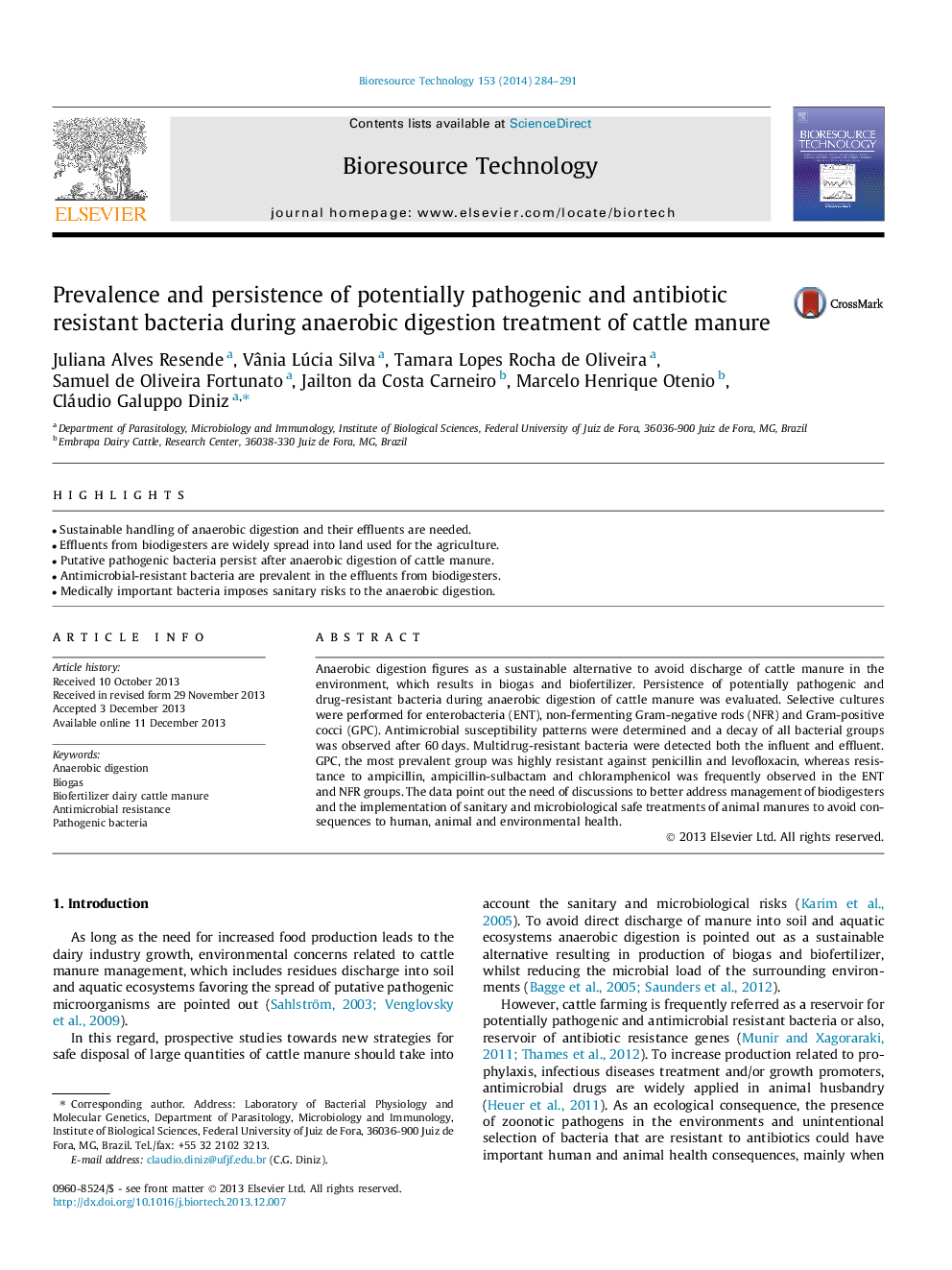| Article ID | Journal | Published Year | Pages | File Type |
|---|---|---|---|---|
| 680740 | Bioresource Technology | 2014 | 8 Pages |
•Sustainable handling of anaerobic digestion and their effluents are needed.•Effluents from biodigesters are widely spread into land used for the agriculture.•Putative pathogenic bacteria persist after anaerobic digestion of cattle manure.•Antimicrobial-resistant bacteria are prevalent in the effluents from biodigesters.•Medically important bacteria imposes sanitary risks to the anaerobic digestion.
Anaerobic digestion figures as a sustainable alternative to avoid discharge of cattle manure in the environment, which results in biogas and biofertilizer. Persistence of potentially pathogenic and drug-resistant bacteria during anaerobic digestion of cattle manure was evaluated. Selective cultures were performed for enterobacteria (ENT), non-fermenting Gram-negative rods (NFR) and Gram-positive cocci (GPC). Antimicrobial susceptibility patterns were determined and a decay of all bacterial groups was observed after 60 days. Multidrug-resistant bacteria were detected both the influent and effluent. GPC, the most prevalent group was highly resistant against penicillin and levofloxacin, whereas resistance to ampicillin, ampicillin-sulbactam and chloramphenicol was frequently observed in the ENT and NFR groups. The data point out the need of discussions to better address management of biodigesters and the implementation of sanitary and microbiological safe treatments of animal manures to avoid consequences to human, animal and environmental health.
